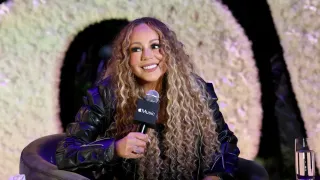September 25, 2014
Out SF School Board Candidates Back New Curriculum Standards
Kilian Melloy READ TIME: 6 MIN.
The two out candidates seeking seats on San Francisco's school board are supportive of the new curriculum standards known as Common Core.
Initiated by the Obama administration in reaction to the criticism that dogged former President George W. Bush's education policy known as No Child Left Behind, the Common Core standards outline learning goals for students at each grade level in mathematics and English.
Forty-three states, including California, and the District of Columbia have adopted the new standards and have begun instituting them. They have generated controversy, however, as parents and educators try to understand the new teaching methods and tests that come with Common Core. And Republican state lawmakers have criticized the new standard as a federal mandate that strips local officials of their ability to set education policy.
The Council of Chief State School Officers and the National Governors Association Center for Best Practices call such claims myths. The groups counter that the standards "are designed to build upon the most advanced current thinking about preparing all students for success in college, career, and life. This will result in moving even the best state standards to the next level."
School board candidate Jamie Rafaela Wolfe. Photo: Rick Gerharter
During recent editorial board meetings with the Bay Area Reporter, both Mark Murphy, 49, a gay man who is a communications and marketing consultant, and transgender educator Jamie Rafaela Wolfe, 37, voiced support for the new standards.
"They are standards, not a federal mandate," said Murphy, whose husband, David Allyn, works at Argonne Elementary School in the city's Richmond district. "A number of education leaders said No Child Left Behind didn't serve us well."
He pointed out that the new standards do not prescribe specific curriculums that school districts should be using, as those decisions are being made at the local level.
"They are new standards - not curriculum - for what children should know as they move up through the grades," said Murphy, who acknowledged that "the way you teach is a little different. You are getting children to think critically."
The changes in standards and testing are "the greatest" seen in a generation, acknowledged Murphy.
"The changes coming for our students, teachers, administrators, and parents/guardians over the next many years is not to be under estimated," noted Murphy, who said one of his priorities on the school board will be to ensure all district staff have the training they need "not just for day one, but for ongoing support and collaboration" as they implement Common Core.
Wolfe, a behaviorist and floor manager at Oakes Children's Center Inc., a nonprofit that provides educational and therapeutic services to children with emotional and developmental issues, told the B.A.R. that she understands why Common Core has fostered such strong negative reactions to it. Nonetheless, she pointed out there are positive benefits to it for students.
"Common Core is tricky; it is still new," she said. "What I do appreciate about Common Core is that it is a standard to teach to. You are teaching to a standard and not teaching to a test."
Wolfe also pointed out that the new standards allow for differentiated lesson plans for students who learn in different ways and at different speeds.
"Some people think Common Core dumbs down curriculum and makes children go at one pace. That is not how I view it," said Wolfe, who believes it allows for "different teaching for learners where they are at."
Rather than oppose Common Core, Wolfe said she wants to ensure it is implemented properly and tailored to ensure students succeed, not just at the level called for by the standards but also beyond them.
"I would say now Common Core is where we are at. The reality is it is not going away right now," she said. "I want to see where it goes but I don't just stop at Common Core."
School Board Lacks LGBT Member
The San Francisco Unified School District Board of Education has been without an LGBT member on it since 2009. While gays and lesbians have held seats on it, no transgender person has been elected to the board.
Wolfe argued her election would be transformative, particularly since students are coming out as transgender at ever younger ages and schools are still grappling with how to best serve their needs in and out of the classroom.
If elected, Wolfe said "trans identified and gender nonconforming students will know they have an advocate on the school board." And she pledged to be a voice statewide calling for full implementation of California's landmark bill that requires school districts to provide transgender youth full participation in all school activities, sports teams, programs, and facilities that match their gender identity. Known as Assembly Bill 1266, it went into effect at the start of this year and was authored by gay Assemblyman Tom Ammiano (D-San Francisco).
"I will push other school boards to ensure safe schools for all families," said Wolfe. "We have students in crisis right now who are unsure of their safety. I want to make sure Ammiano's bill is upheld in every school district."
Murphy also told the B.A.R. it is important for there to be an LGBT person serving on the school board, not only to support LGBT students but also the growing number of LGBT couples raising children in the city.
"There needs to be a person who understands what they are going through sitting at the table. Someone who is responsible for them and understands who they are, whether as children or parents," said Murphy.
With three school board seats on the November ballot, it is possible that both Murphy and Wolfe could be elected. This is Murphy's first bid for public office, while Wolfe last ran for a school board seat in 2010 but came up short.
This week, the B.A.R. endorsed Murphy and Wolfe as well as incumbent Emily Murase, 49, executive director of the city's Commission on the Status of Women.
"While I am not LGBT, I consider myself a member of the LGBT community," Murase wrote on the B.A.R.'s questionnaire for school board candidates. "It is important that school board members engage and serve all of the diverse communities of San Francisco."
Asked what the school board can do to implement AB 1266, Murase told the B.A.R. that each school's gay-straight alliance should report on the status of the law at their school site to the board in addition to regular staff reports on its implementation.
As for the Common Core standards, Murase also voiced strong support for them.
"Actually, I believe that the Common Core releases educators from the tyranny of prescribed textbooks and high stakes testing and empowers them to find their own materials," she wrote. "It opens up space for collaborative work among educators."
There are six other candidates in the race, including incumbent Hydra Mendoza, 49, Mayor Ed Lee's education adviser, and Trevor McNeil, 32, a former substitute teacher in the district who led the GSA at both his middle and high schools.
In response to the question regarding AB 1266, Mendoza told the B.A.R. the district should ask students on its annual surveys a question about "the safety and inclusion of our trans students that could help us make improvements to the policy."
Also supportive of Common Core, Mendoza wrote on her questionnaire that her "biggest concern is the critical need to provide the necessary training and support to our educators to ensure smooth implementation and uninterrupted transition."
McNeil, who tutors high school students, sees Common Core as "not a perfect answer," with its roll out leading to a loss of support among teachers and parents. Yet he pointed out that "there is too much inertia behind it," and should he be elected to the school board, will bring "both an optimistic hope that this can work and a cautious memory of many, many past school fads that only hurt students, exhausted teachers, and forced districts to focus on problems beyond the most pressing issues they faced at a local level."
In terms of LGBT initiatives, McNeil told the B.A.R. that he wants to see sex education in the schools be "less hetero-normative" and a continued emphasis on anti-bullying efforts and professional development about LGBT issues.
"Frankly, I sense that there is quite a bit of complacency among SFUSD leadership because San Francisco is often the 'first' to get to a place of implementing progressive, affirming programs in schools so we pat ourselves on the back and often don t do the follow up self-evaluation required," he wrote.
The other candidates in the race are Stevon Cook, a staffer at the San Francisco Education Fund; Lee Hsu, who works at GemShare, an application whose users rate local services; Shamann Walton, executive director of the Bayview-based Young Community Developers Inc.; and Dennis Yang, who teaches Mandarin at the Bay School of San Francisco, a private college preparatory high school located in the Presidio.






